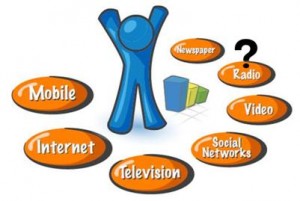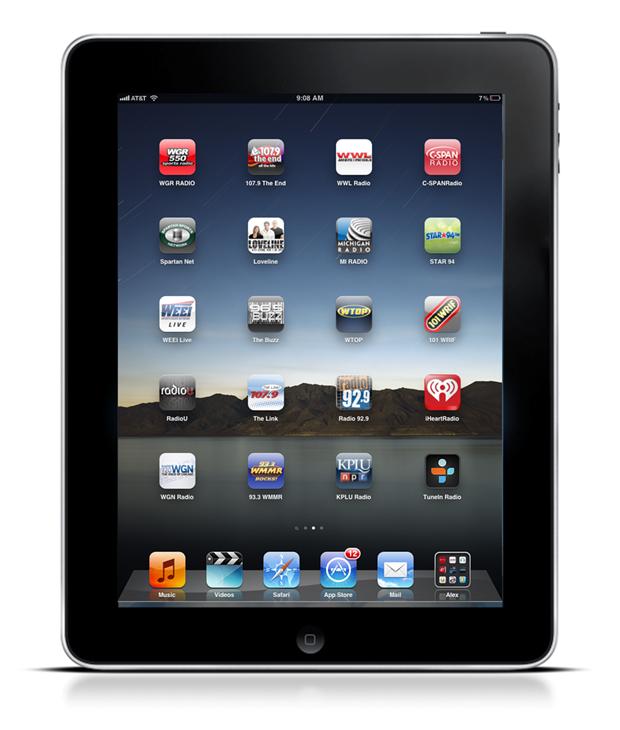Yesterday, we looked at a Media Behavior Institute study that strongly suggested that the habits of advertising professionals don’t match those of the general population – especially when it comes to radio listening.
In fact, while only 42% of these Madison Avenue mavens listened to radio during the day-long test period, 80% of consumers spent time with AM or FM stations during the same period. The MBI suggested this disconnect presents a real challenge because of the media usage disparity between real people and those responsible for spending advertising dollars.
 And it’s hard to disagree with that premise. You’re not going to be gung ho about – much less buy – a media product you don’t consume yourself.
And it’s hard to disagree with that premise. You’re not going to be gung ho about – much less buy – a media product you don’t consume yourself.
Conversely, these advertising professionals spent an inordinate amount of time with print media, a possible explanation as to why we still see so much advertising in daily newspapers, despite their rapidly declining circulations.
So what’s radio to do?
Well, here’s an idea. There was one area of the study where the habits of real people and ad media folks linked up – sort of.
And now we’re talking tablets.
While the media pros were three times more likely to own an iPad-like device than real people, each group used them about 7% of their overall waking time.
And that spurred a thought.
Even if you already own a tablet, you can always use another one. So why wouldn’t the RAB get together with its membership and simply give away tablets to every key player in the advertising industry – buyers, planners, account supervisors, and even principles? These devices are becoming high-end door prizes so why not speak to them in the language they speak?
Then monogram tablets cases with a pithy reminder about radio’s vitality (not “Radio is red hot!” but maybe “Radio’s Gone Mobile”) and load these tablets up with the very best mobile apps from some of America’s best and most diverse stations, shows, and personalities. Just like I’ve done below:
 Showing that radio belongs on the hottest devices of our time, and that the industry is leaning forward when it comes to embracing mobile should be Job One. Radio is making the transition to digital, mobile, and social platforms, and that’s worthy of their attention. There’s a story to be told to those who control the dollars. If the industry sits back and assumes they will figure it out on their own, shame on us.
Showing that radio belongs on the hottest devices of our time, and that the industry is leaning forward when it comes to embracing mobile should be Job One. Radio is making the transition to digital, mobile, and social platforms, and that’s worthy of their attention. There’s a story to be told to those who control the dollars. If the industry sits back and assumes they will figure it out on their own, shame on us.
And besides, spending time with radio on an iPad beats reading the newspaper. Even the online edition.
Radio apps featured:
Top row: WGR, KDND, WWL, C-Span Radio
Second row: Spartan Sports Network, Loveline, Michigan Radio, WSTR
Third row: WEEI, KRBZ, WTOP, WRIF
Fourth row: WUFM (RadioU), WLNK, WBOS, iHeartRadio
Fifth row: WGN, WMMR, KPLU, TuneIn Radio
- For Radio, Will It Be Christmas In April (And Hopefully, May)? - April 21, 2025
- The Revolution Will Not Be Monetized - December 30, 2024
- What Kind Of Team Do You Want To Be? - October 4, 2024




Totally loved your idea of distributing tablets to the key media professionals in the radio food chain! My friend Rob Curley monetized this idea in Vegas. His Las Vegas Sun newspaper deployed tablets in the high end hotels, crammed full of apps and browser bookmarks for restaurants, entertainment and attractions in the host hotel. Want to book dinner or a show? Use the tablet? Want to take it with you? The cost is automatically added to your hotel bill.
The advertisers paid for the cost of the device. Way cool. BTW.. If I were a Vegas radio station, I’d pay for placement on the tablet.
And a thought for radio apps in general. Is there a way that buyers / advertisers can access a page on the app that makes it easy for them to buy? If I were a sales rep, I’d make sure all my clients had my station’s app on their device, customized with my contact info and the top reasons (of the week) to buy me.
Scott, thanks for taking my rudimentary idea and breathing some hi-tech life into it. Rob Curley is one of the brightest thinkers in the space and his innovations at the Sun are worth studying. Thanks for adding to the conversation and for reading our blog.
Sorry to say this, but these two posts (yesterday and today) are some of my least favorite that I’ve seen in your blog, which is usually really insightful.
First, this concept sounds a lot like a political party complaining about media bias. Second, buyers/planners/supervisors/account execs have nothing to say about media choices. The media department of an agency is primarily a negotiation unit and doesn’t get involved with or have the authority to determine a client’s media mix. That decision is made at a higher level and factors in agency profit along with results expectations, because agencies are compensated on results these days, not a percentage of their media spend.
If radio wants to target the people who make media choices, it would be wise to approach them with a legitimate business case for something that would make them and their clients more money – not a generic pitch on radio’s reach, or on its apps. While radio has done a nice job with its apps and some are really cool – unless there is a tie in that makes a particular client real incremental money on a scale large enough to matter to them and their agency, those tablets will probably end up regifted to the kids of the agency personal who get them.
Bob, I was expecting a comment from someone calling bullshit on these posts and you have not disappointed. I am all too aware of where the decisions are made and radio’s failure to make the case for why the medium brings profit, store traffic, and results. But I am also coming to believe that radio’s image and perception plays a role, too. This study suggests that’s the case, and while an iPad in every briefcase and purse isn’t going to fix anything, it may be part of the solution for raising awareness for a medium that is too often marginilized by that boom box Charles Schwab commercial we blogged about over the summer. Thanks for the healthy cynicism and for helping turn this blog into a conversation rather than a monologue.
If you haven’t read Michael Saylor’s ‘The Mobile Wave: How Mobile Intelligence Will Change Everything,’ grab a copy. It certainly makes a convincing case that mobile smart devices are going to completely change or eliminate many “good” businesses right now in the next decade or two. He predicts that “paper” is going away.
Jaye, based on just the decision by Newsweek yesterday to stop publishing, he’s on the right path. Thanks for the recommendation & for reading our blog.